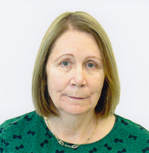
Inspired by the legendary playwright Eugene O’Neill, Christine Frederickson decided at a young age to follow in his footsteps and pursue her love for reading and writing. Her journey to reach that goal began at Kalamazoo College, where she completed coursework from 1964 to 1966, and continued at the University of New Hampshire, where she earned a Bachelor of Arts, cum laude, in 1968. While at the latter school, she obtained her first job in the field as a college board member of Mademoiselle. She proceeded to further her education in 1974, when she received a Master of Education from Boston College.
After decades of professional experience in roles like staff writer for Computerworld Weekly, radio events editor for Antique Radio Classified through Vintage Radio Publishing LLC, and court reporter in Los Angeles, Ms. Frederickson can honestly say that she has enjoyed every part of her career. Some of the highlights include traveling to Rome, Italy, to conduct research in the archive library about the Cassini-Huygens mission and seeing the play she authored, “Doña Victoria-First Lady of San Gabriel,” performed at the Old Southwest Museum. She is also proud of her positions as a new script reader for The Fountain Theatre, as a docent of Las Angelitas del Pueblo, and as a bulletin editor for the Caltech Women’s Club. She is currently lending her services to the San Gabriel Mission, where she has been a docent since 2009.
Ms. Frederickson is so passionate about her profession that she even enjoys reading, writing, traveling, and studying theatre, history, and theology in her spare time. She also likes to connect with her peers through affiliation with organizations like the Association of LA Playwrights, the California Mission Studies Association, the Eugene O’Neill Society, the International Bonhoeffer Society, and the Dramatists Guild (now the Dramatists Guild of America, Inc.). In recognition of her efforts, she was honored with the History Award from the San Gabriel Mission in 2009 and as a Critic Fellow by the National Critics Institute in 2000.
